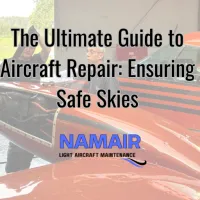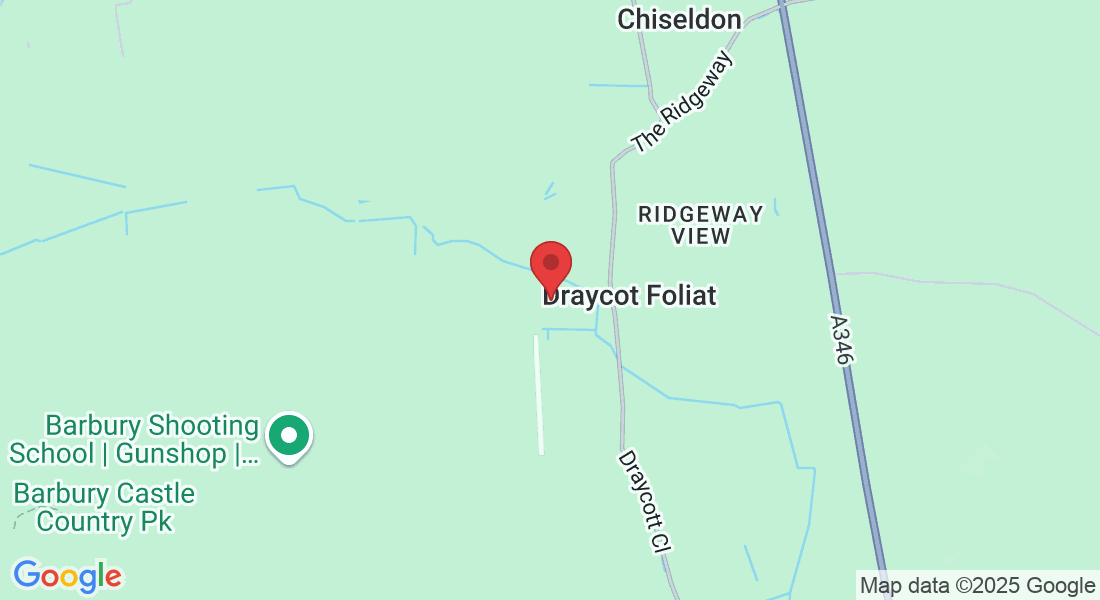Get Back in the Air Safely and Conveniently with Namair
Expert Light Aircraft Maintenance and Repair Service by Two Seasoned Ex-RAF Engineers
CAA PART CAO Maintenance
BCAR Approved
LAA
ARCs
Avionics Repaired
Engines Overhauled
Engines Repaired
Collection and Delivery Available
At Namair, we understand that your aircraft is more than just a mode of transportation - it's your passion, your livelihood, and your ticket to adventure. That's why we're committed to providing the highest quality aircraft maintenance and repair services in the UK, so that you can get back in the air safely and conveniently.
Fly with Peace of Mind: Our Comprehensive
Aviation Solutions
We go above and beyond for our customers by offering a temporary aircraft loan program, free flights, TBO extension services, and personalised AMPs to ensure that you can keep flying safely and efficiently.
Courtesy Aircraft
Don't let a damaged aircraft keep you grounded! At Namair, we understand the frustration and inconvenience of having your plane out of commission. That's why we offer a loaner plane while yours is being repaired, so you can stay in the air and continue flying.
Free Ferry Flights
Our team of experienced professionals has the expertise and knowledge necessary to provide high-quality services that meet your needs and exceed your expectations.
TBO Extension
We understand that aircraft maintenance can be a significant expense, which is why we work closely with you to extend your TBO (Time Before Overhaul) and keep your aircraft in the air longer. We also offer specialized ab initio training to ensure that your aircraft is always operating at peak performance..
AMP Development
We understand that every aircraft is unique and has different needs. That's why we work closely with you to develop the perfect AMP (aircraft maintenance program) for the type and amount of use your plane sees. Our experienced technicians will analyse your aircraft's usage and develop a customized maintenance plan to keep it in top condition.
Fly with Peace of Mind: Our Comprehensive
Aviation Solutions
We go above and beyond for our customers by offering a temporary aircraft loan program, free flights, TBO extension services, and personalized AMPs to ensure that you can keep flying safely and efficiently.
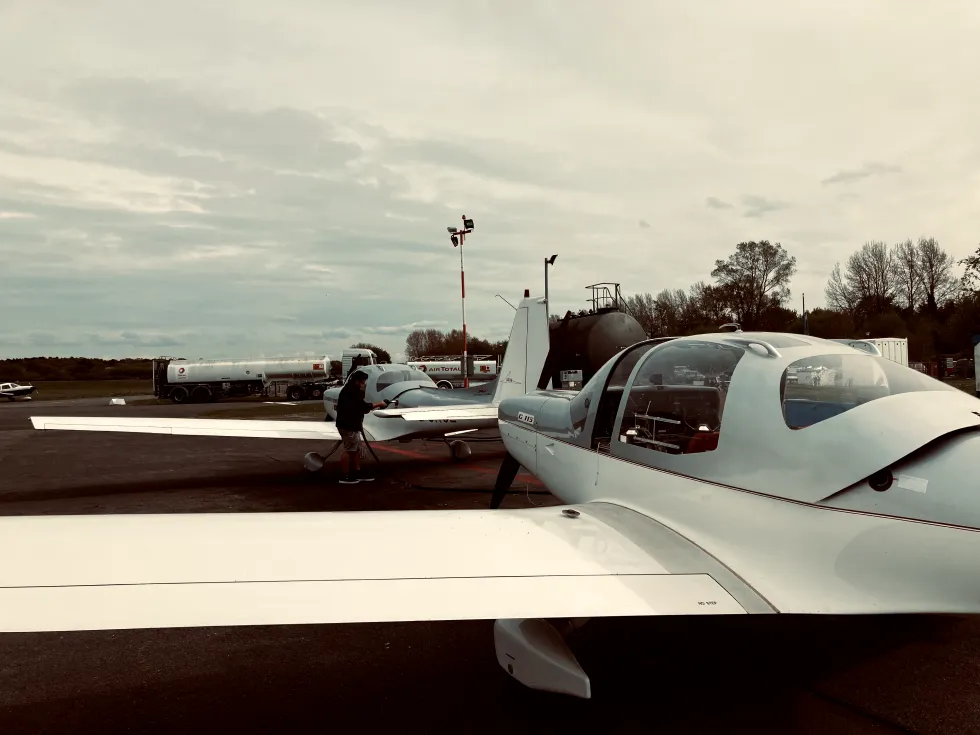
Courtesy Plane
Don't let a damaged aircraft keep you grounded!
At Namair we understand the frustration and inconvenience of having your plane out of commission. That's why we offer a coutesy plane while yours is being repaired, so you can stay in the air and continue flying.
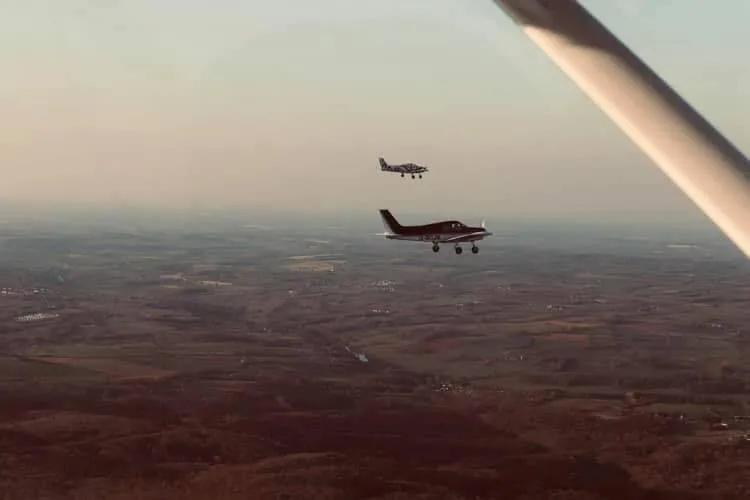
Free Ferry Flights
Our team of experienced professionals has the expertise and knowledge necessary to provide high-quality services that meet your needs and exceed your expectations.
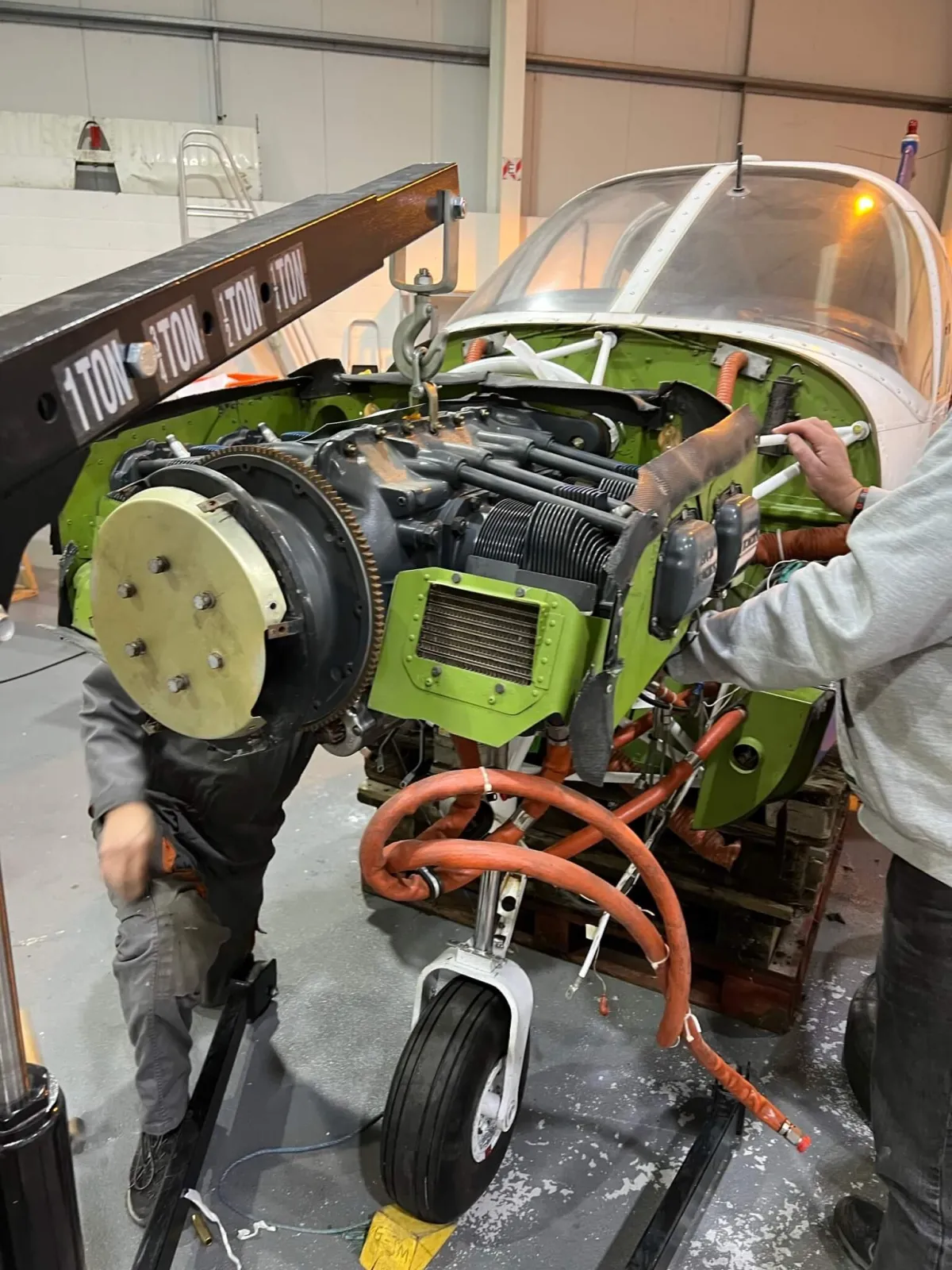
TBO Extension
We know that aircraft maintenance can be a significant expense, which is why we work closely with you to extend your TBO (Time Before Overhaul) and keep your aircraft in the air longer. We also offer specialized abolition training to ensure that your aircraft is always operating at peak performance.
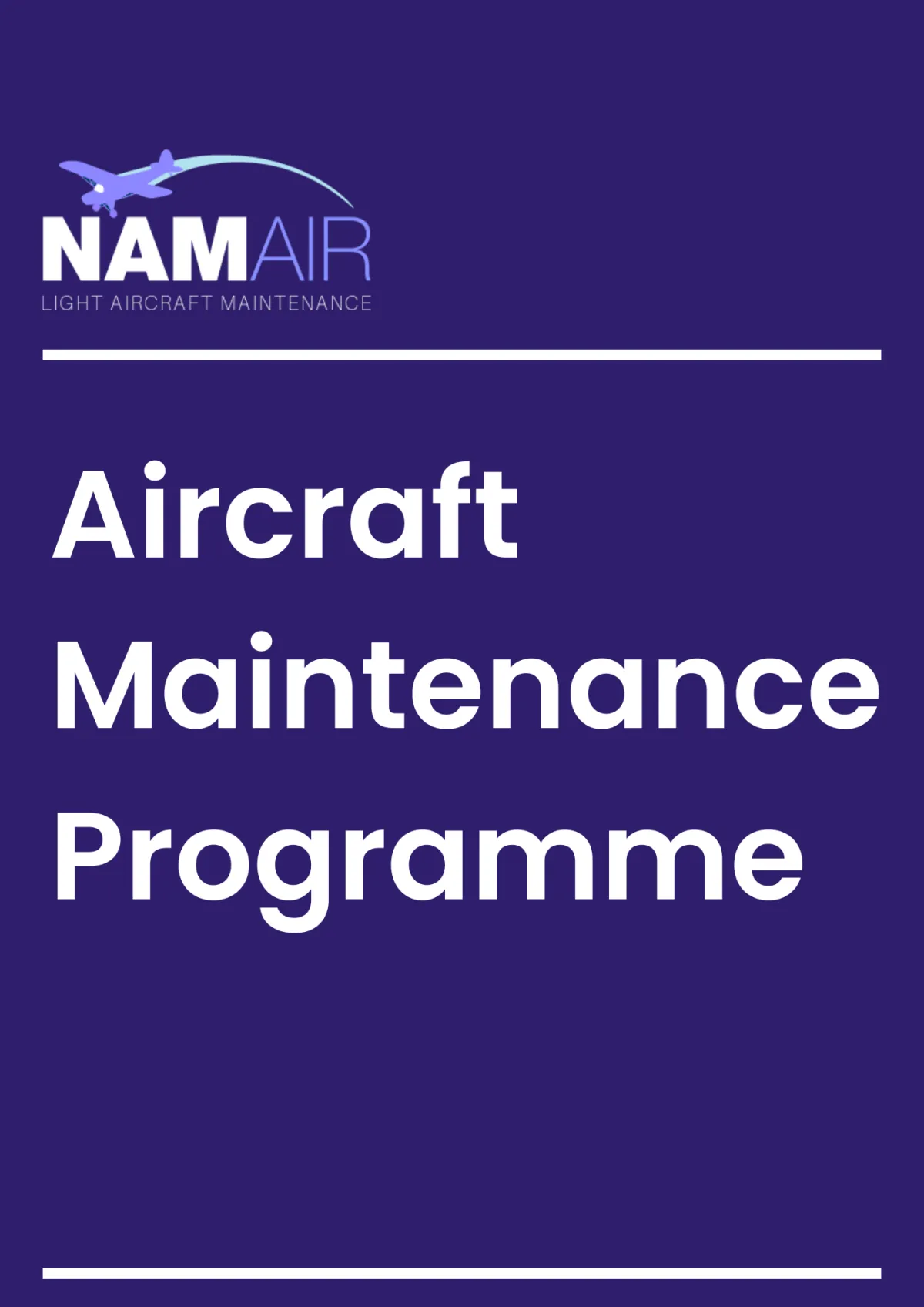
AMP Development
We understand that every aircraft is unique and has different needs. That's why we work closely with you to develop the perfect AMP (Aircraft Maintenance Program) for the type and amount of use your plane sees. Our experienced technicians will analyse your aircraft's usage and develop a customized maintenance plan to keep it in top condition.
Services Offered by Namair
We are Committed to Delivering High-Quality Services that Meet the Unique Needs of Each Client.

Aircraft Maintenance
We offer customized aircraft maintenance plans using the latest technology and best practices, ensuring your plane is in top condition and ready to fly safely.

Aircraft Repairs
Our skilled technicians use high-quality parts and materials to efficiently handle a wide range of aircraft repairs, minimizing downtime and restoring your aircraft to its original or better condition.

Avionics Services
Our experienced team offers a full range of avionics services, including installations, upgrades, and troubleshooting, staying up-to-date with the latest technologies and industry standards.
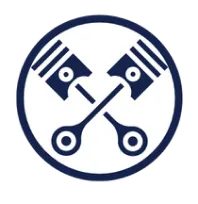
Parts and Supplies
We provide quick access to a comprehensive inventory of parts and supplies to keep your aircraft running smoothly, and our team can source hard-to-find items from reputable manufacturers as needed.

Consulting and Support
We offer consulting and support services to help simplify the complex and challenging aspects of owning and operating an aircraft, providing guidance on purchasing, maintenance, regulatory compliance, and safety standards

Aircraft Management
We offer personalised aircraft management services to handle all aspects of ownership, from maintenance scheduling to pilot coordination and administrative tasks, ensuring your aircraft is safely and efficiently operated while you focus on enjoying it.
Services Offered by Namair
We are Committed to Delivering High-Quality Services that Meet the Unique Needs of Each Client.

Aircraft Maintenance
We offer customized aircraft maintenance plans using the latest technology and best practices, ensuring your plane is in top condition and ready to fly safely.

Aircraft Repairs
"Our skilled technicians use high-quality parts and materials to efficiently handle a wide range of aircraft repairs, minimizing downtime and restoring your aircraft to its original or better condition."
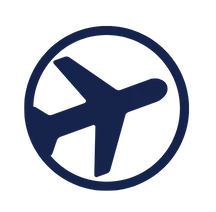
Avionics Services
"Our experienced team offers a full range of avionics services, including installations, upgrades, and troubleshooting, staying up-to-date with the latest technologies and industry standards."

Parts and Supplies
We provide quick access to a comprehensive inventory of parts and supplies to keep your aircraft running smoothly, and our team can source hard-to-find items from reputable manufacturers as needed.

Consulting and Support
We offer consulting and support services to help simplify the complex and challenging aspects of owning and operating an aircraft, providing guidance on purchasing, maintenance, regulatory compliance, and safety standards

Aircraft Management
We offer personalized aircraft management services to handle all aspects of ownership, from maintenance scheduling to pilot coordination and administrative tasks, ensuring your aircraft is safely and efficiently operated while you focus on enjoying it.
Why Choose US
Here are Some Potential Features for an aircraft Maintenance and Repair at Namair
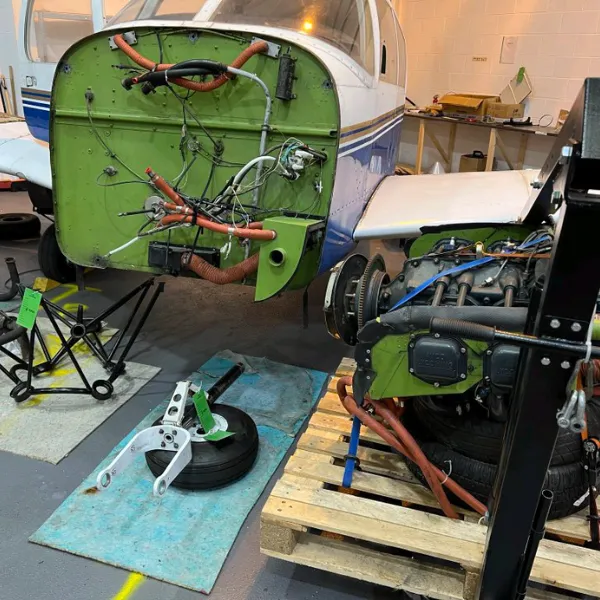
Customised Maintenance Plans
We offer customised maintenance plans that are tailored to meet the specific needs of each client, ensuring that your aircraft receives the care it needs to stay in top condition.
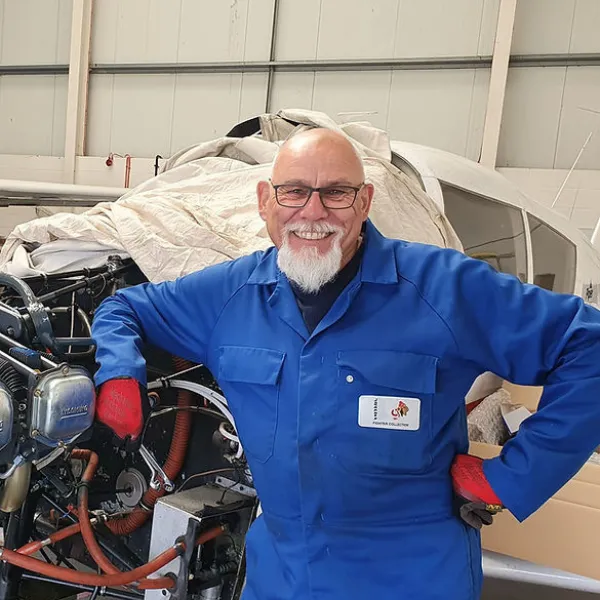
Experienced Professionals
Our team of experienced professionals has the expertise and knowledge necessary to provide high-quality services that meet your needs and exceed your expectations.
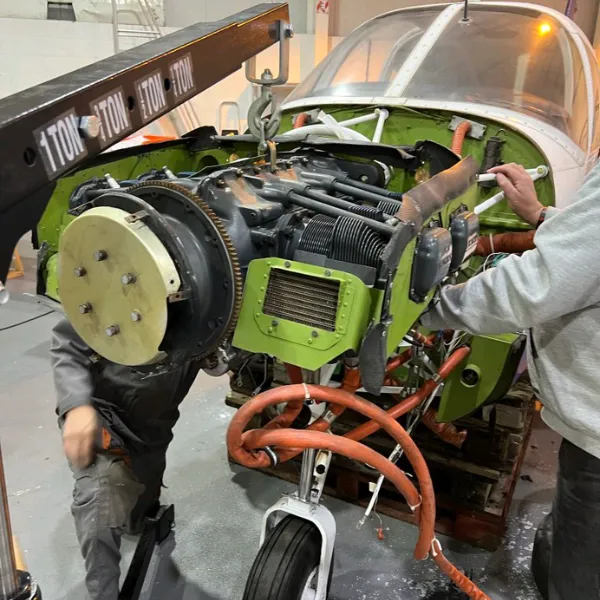
Comprehensive Inventory
We maintain a comprehensive inventory of parts and supplies, providing quick access to the items you need to keep your aircraft running smoothly.
Why Choose US
Here are Some Potential Features for aircraft Maintenance and Repair at Namair

Customized Maintenance Plans
We offer customized maintenance plans that are tailored to meet the specific needs of each client, ensuring that your aircraft receives the care it needs to stay in top condition.

Experienced Professionals
Our team of experienced professionals has the expertise and knowledge necessary to provide high-quality services that meet your needs and exceed your expectations.

Comprehensive Inventory
We maintain a comprehensive inventory of parts and supplies, providing quick access to the items you need to keep your aircraft running smoothly.
About Namair
At Namair, we're a team of aviation experts who understand the challenges of aircraft ownership and operation. We provide high-quality maintenance, repair, and management services to help our clients keep their planes flying safely and efficiently.
Our team is dedicated to delivering customized solutions that meet each client's unique needs, and we offer consulting and support services to simplify the process.
With our focus on quality, reliability, and professionalism, we're a trusted partner for aircraft owners and operators throughout the UK.
Let us take care of your plane so you can focus on enjoying it without the hassle and headaches of maintenance and management.

Your Reliable Experts
Count on us for dependable solutions, expert guidance, and exceptional service.
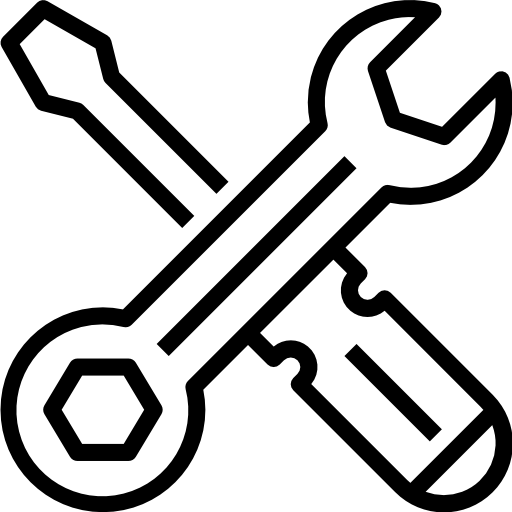
Experience You Can Trust
Our years of experience and proven track record make us your go-to partner for all your aviation repairs and maintenance needs.
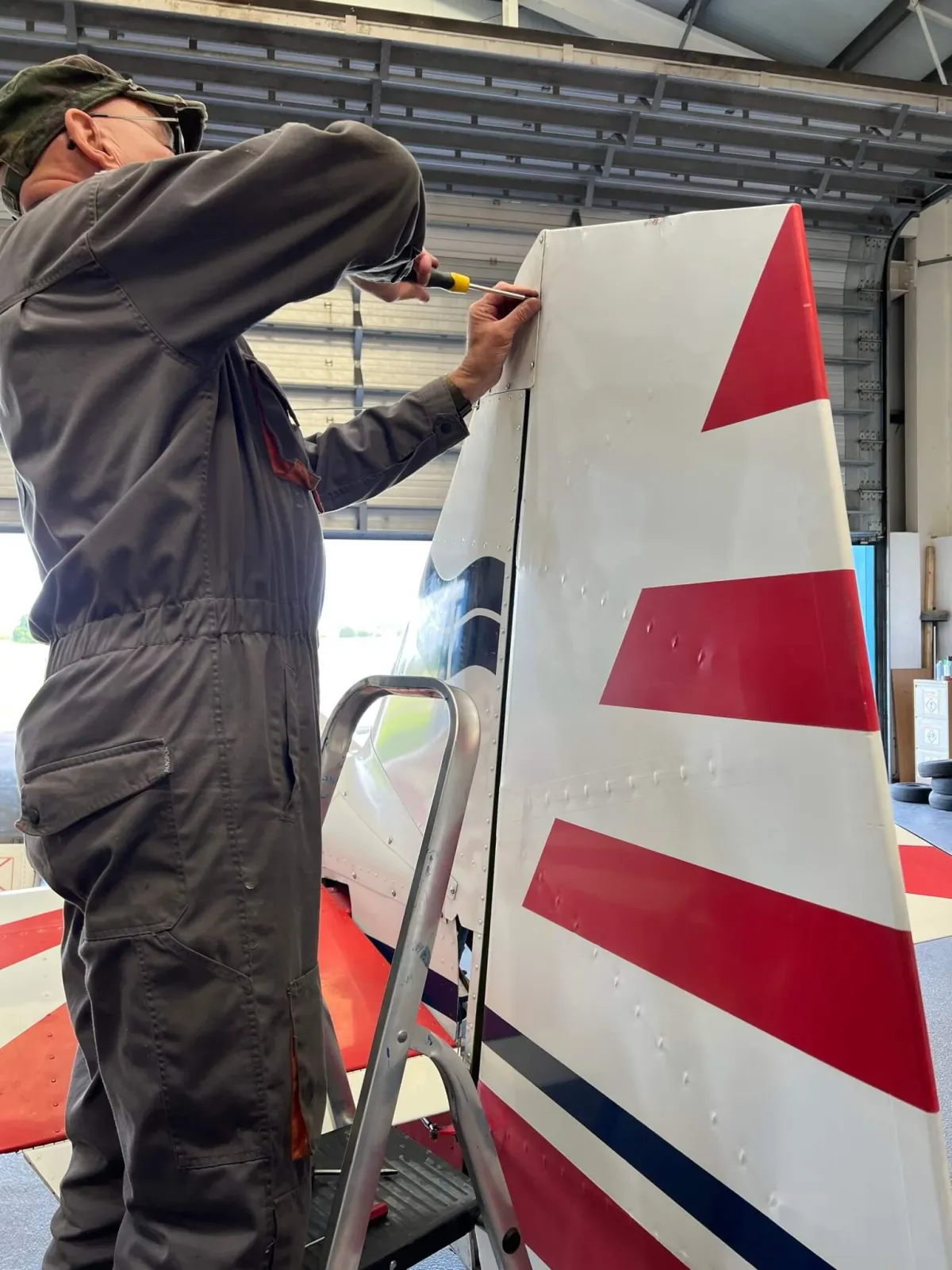
ABOUT Namair

At Namair, we're a team of aviation experts who understand the challenges of aircraft ownership and operation. We provide high-quality maintenance, repair, and management services to help our clients keep their planes flying safely and efficiently.
Our team is dedicated to delivering customized solutions that meet each client's unique needs, and we offer consulting and support services to simplify the process.
With our focus on quality, reliability, and professionalism, we're a trusted partner for aircraft owners and operators throughout the UK.
Let us take care of your plane so you can focus on enjoying it without the hassle and headaches of maintenance and management.

Your Reliable Experts
Count on us for dependable solutions, expert guidance, and exceptional service.

Experience You Can Trust
Our years of experience and proven track record make us your go-to partner for all your aviation repairs and maintenance needs
Blog and Articles
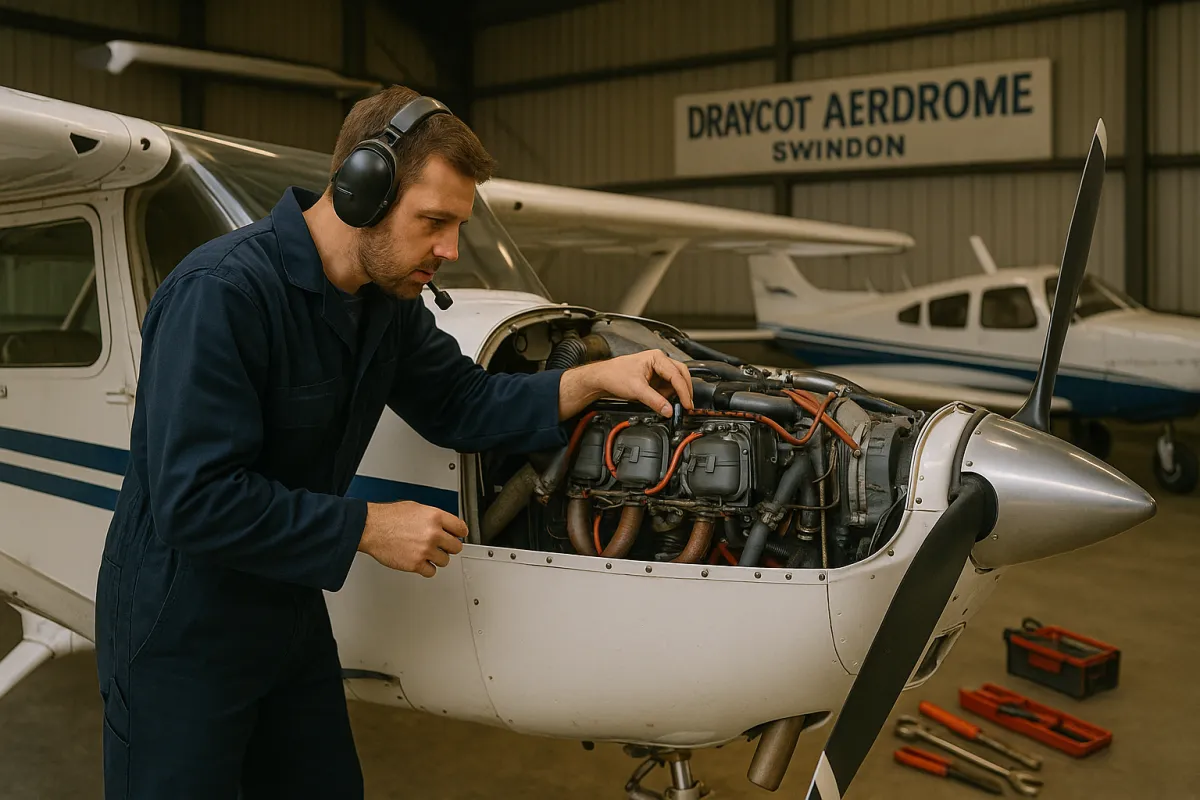
The Complete Guide to Light Aircraft Maintenance: Beyond the Basics
Understanding the Essential Nature of Aircraft Maintenance
Aircraft maintenance represents the critical foundation of aviation safety. At NamAir, based at Draycot Aerodrome near Swindon, Wiltshire, we understand that proper maintenance goes far beyond regulatory compliance—it's about creating a comprehensive approach to aircraft care that enhances safety, performance, reliability, and value retention.
This guide explores the fundamentals of light aircraft maintenance applicable to various models, from preventive measures to troubleshooting common issues, helping aircraft owners develop effective maintenance strategies regardless of aircraft type or manufacturer.
The Regulatory Framework for Aircraft Maintenance
Understanding Maintenance Categories
Aircraft maintenance falls into several distinct categories, each with specific regulatory requirements:
1. Scheduled Maintenance: Includes annual inspections, 100-hour inspections, and manufacturer-recommended service intervals.
2. Unscheduled Maintenance: Addresses unexpected issues requiring immediate attention.
3. Preventive Maintenance: Regular actions to prevent failures, some of which may be performed by properly certified owners.
4. Major Repairs and Alterations: Significant work requiring specific documentation and approval.
Key Regulatory Requirements
In the UK, aircraft maintenance is governed by the Civil Aviation Authority (CAA) regulations, which closely align with European Union Aviation Safety Agency (EASA) standards. Key requirements include:
Aircraft maintenance performed by appropriately licensed engineers
Proper documentation of all maintenance activities
Compliance with Airworthiness Directives (ADs)
Adherence to manufacturer's maintenance schedules
Regular inspections based on time and usage
Developing a Comprehensive Maintenance Programme
The Annual Inspection: Beyond the Minimum Requirements
While annual inspections represent the regulatory minimum, a truly effective maintenance programme extends beyond these basics:
1. Comprehensive Inspection Checklists: Developing detailed checklists that exceed minimum requirements.
2. Trend Monitoring: Tracking key parameters over time to identify developing issues before they become critical.
3. Oil Analysis Programmes: Regular oil sampling and analysis to detect internal engine wear patterns.
4. Corrosion Prevention Programmes: Proactive measures to prevent corrosion, particularly in coastal or high-humidity environments.
5. Ageing Aircraft Assessments: Additional inspections targeting components prone to age-related deterioration.
Between-Inspection Maintenance
The most effective maintenance programmes include regular between-inspection activities:
1. Owner Inspections: Regular visual inspections by the owner to identify developing issues.
2. Fluid Level Monitoring: Regular checks of oil, hydraulic fluid, and other system fluids.
3. Battery Maintenance: Regular charging and condition assessment, particularly for aircraft not flown frequently.
4. Proper Storage Practices: Correct covering, engine preservation, and environmental protection when not flying.
5. Engine Preservation: Following manufacturer recommendations for aircraft not flown regularly.
Engine Maintenance: The Critical Component
Engine Monitoring Practices
Effective engine maintenance begins with proper monitoring:
1. Temperature Management: Monitoring and proper management of cylinder head and oil temperatures.
2. Engine Parameter Documentation: Keeping detailed records of engine performance parameters.
3. Starting and Shutdown Procedures: Following proper procedures to minimise wear and thermal stress.
4. Proper Leaning Techniques: Understanding and implementing correct mixture management for various flight phases.
5. Break-in Procedures: Following proper procedures for new or overhauled engines.
Common Engine Issues and Troubleshooting
Understanding potential engine issues helps with early identification and resolution:
1. Rough Running: Potential causes include fouled spark plugs, magneto timing issues, carburettor problems, or fuel contamination.
2. Oil Consumption: Increased oil consumption may indicate ring wear, valve guide issues, or oil leaks.
3. Starting Difficulties: Often related to ignition system problems, fuel system issues, or improper starting techniques.
4. Power Loss: May result from carburettor icing, ignition issues, improper leaning, or internal engine problems.
5. Excessive Vibration: Often indicates propeller balance issues, engine mount deterioration, or internal engine problems.

Avionics and Electrical Systems: The Modern Challenge
Maintenance in the Digital Age
Modern avionics present unique maintenance challenges:
1. Software Updates: Maintaining current firmware and database versions.
2. System Integration: Ensuring proper communication between interconnected systems.
3. Power Supply Protection: Implementing proper procedures for power-up and power-down sequences.
4. Environmental Protection: Maintaining proper cooling and protection from moisture.
5. Backup Systems: Ensuring redundant systems remain operational.
Common Electrical System Issues
Electrical system reliability depends on regular maintenance:
1. Charging System Failures: Often indicated by low voltage readings or battery depletion.
2. Intermittent Failures: Among the most challenging to diagnose, often related to poor connections or environmental factors.
3. Circuit Breaker Activations: Important indicators of potential system overloads or short circuits.
4. Corrosion: A common issue at connectors and terminal blocks, particularly in high-humidity environments.
5. Wiring Chafing: Physical damage to wire insulation leading to short circuits or system failures.
Structural Integrity: Maintaining the Airframe
Critical Inspection Areas
Regardless of aircraft type, certain structural areas require particular attention:
1. High-Stress Connection Points: Including wing attachments, engine mounts, and landing gear connections.
2. Control Surface Hinges and Attachments: Ensuring proper security and freedom of movement.
3. Skin Integrity: Checking for cracks, corrosion, or distortion, particularly around rivets and seams.
4. Window and Canopy Seals: Preventing water ingress that can lead to internal corrosion.
5. Internal Structures: Inspection of normally hidden areas for corrosion or damage.
Corrosion Prevention and Treatment
Corrosion represents one of the greatest threats to airframe longevity:
1. Regular Washing: Particularly after operation in coastal environments.
2. Protective Treatments: Application of appropriate corrosion inhibitors.
3. Drain Hole Maintenance: Ensuring drain holes remain open to prevent water accumulation.
4. Interior Climate Control: Managing humidity inside the aircraft when stored.
5. Early Intervention: Addressing minor corrosion before it becomes a major issue.
Fuel Systems: Ensuring Reliability and Safety

Fuel System Maintenance Priorities
Fuel system integrity is critical for safety:
1. Contamination Prevention: Regular sumping and checking for water or debris.
2. Fuel Tank Inspection: Checking for internal corrosion or sealant deterioration.
3. Filter Maintenance: Regular inspection and replacement of fuel filters.
4. Fuel Line Condition: Checking for deterioration, particularly of flexible hoses.
5. Fuel Quantity System Calibration: Ensuring accurate fuel quantity indication.
Troubleshooting Fuel System Issues
Common fuel system problems include:
1. Uneven Fuel Feed: Often related to vent system issues or tank interconnect problems.
2. Fuel Starvation During Manoeuvres: May indicate inadequate baffling or low fuel conditions.
3. Leaks: Requiring immediate attention regardless of severity.
4. Vapour Lock: More common in hot weather, often related to fuel system design or operation.
5. Gauge Inaccuracy: Creating potential for fuel exhaustion if relied upon exclusively.
The Owner's Role in Aircraft Maintenance
Owner-Performed Preventive Maintenance
Under CAA regulations, aircraft owners with appropriate pilot certification may perform certain preventive maintenance tasks:
1. Oil and Filter Changes: Following proper procedures and documentation.
2. Spark Plug Maintenance: Removal, cleaning, gap adjustment, and reinstallation.
3. Tyre Replacement: When not requiring wheel disassembly.
4. Simple Lubrication: Not requiring control surface disassembly.
5. Non-Structural Repairs: To fabric covering, within specific limitations.
Developing a Partnership with Your Maintenance Provider
The most effective aircraft maintenance comes from a collaborative approach:
1. Clear Communication: Thoroughly discussing observed issues and concerns.
2. Maintenance Planning: Working together to develop long-term maintenance strategies.
3. Education: Learning about your specific aircraft's systems and maintenance requirements.
4. Documentation Review: Regularly reviewing maintenance records with your technician.
5. Budget Planning: Developing realistic maintenance budgets that prioritise safety-critical items.
Frequently Asked Questions About Light Aircraft Maintenance
Q: How often should I perform engine oil changes?
A: While most manufacturers recommend changes every 50 flight hours or 4-6 months (whichever comes first), more frequent changes (25-30 hours) provide additional engine protection, particularly for aircraft not flown regularly.
Q: What maintenance items are most commonly overlooked by owners?
A: The most frequently overlooked items include control cable tension checks, corrosion inspection in hidden areas, instrument static system checks, and proper documentation of minor repairs.
Q: How can I reduce maintenance costs without compromising safety?
A: The most effective approaches include performing allowed owner-maintenance, addressing minor issues before they become major problems, proper engine operation, and developing a relationship with a trusted maintenance provider who understands your aircraft.
Q: What should be in my aircraft's "minimum equipment" toolkit?
A: A basic toolkit should include appropriate screwdrivers, wrenches sized for your aircraft, tyre pressure gauge, torch, safety wire and pliers, spare fuses/bulbs, and a multimeter for electrical troubleshooting.
Q: How do environmental factors affect my maintenance schedule?
A: Operating environment significantly impacts maintenance needs. Coastal locations require more frequent corrosion inspections, dusty conditions necessitate more frequent air filter changes, and extreme temperatures affect lubrication requirements.
Special Considerations for UK-Based Aircraft
Weather and Environmental Factors
The UK's maritime climate presents specific maintenance challenges:
1. Corrosion Prevention: The high humidity and coastal proximity increase corrosion risk, necessitating more frequent inspections and preventive treatments.
2. Rainwater Intrusion: Proper sealing of windows, doors, and access panels is critical to prevent internal damage.
3. Hangarage Considerations: When available, hangar storage significantly reduces environmental exposure.
4. Cold Weather Operations: Proper engine pre-heating and battery maintenance during winter months.
5. Humidity Control: Using dehumidifiers or desiccants in stored aircraft to prevent corrosion.
Local Regulatory Considerations
UK-based aircraft must comply with specific national requirements:
1. CAA Regulations: Understanding the differences between CAA and EASA requirements.
2. Brexit Implications: Navigating the changing regulatory landscape following the UK's exit from the EU.
3. Permit Aircraft Considerations: Understanding the different maintenance requirements for permit-to-fly versus certified aircraft.
4. Engineer Licensing: Ensuring maintenance is performed by appropriately licensed personnel.
5. Documentation Requirements: Maintaining proper records that satisfy both operational and regulatory needs.
The NamAir Approach to Aircraft Maintenance
At NamAir, located at Draycot Aerodrome near Swindon, we've developed a comprehensive approach to aircraft maintenance:
Preventive Philosophy
Our maintenance philosophy emphasises prevention rather than reaction:
1. Detailed Inspection Protocols: Going beyond minimum requirements to identify developing issues.
2. Customised Maintenance Programmes: Tailored to your specific aircraft, usage patterns, and storage environment.
3. Modern Diagnostic Techniques: Utilising advanced tools to identify issues not visible to the naked eye.
4. Component Tracking: Monitoring time and cycles on life-limited components.
5. Trend Analysis: Identifying gradual changes that might indicate developing problems.
Comprehensive Service Offerings
Our maintenance capabilities include:
1. Scheduled Inspections: Annual, 100-hour, and progressive inspection programmes.
2. Engine Services: From routine maintenance to overhaul management.
3. Avionics Installation and Repair: Keeping your aircraft's systems current and reliable.
4. Structural Repairs: Addressing damage while maintaining airframe integrity.
5. Pre-Purchase Inspections: Helping prospective buyers make informed decisions.
Conclusion: The Value of Professional Maintenance
While aircraft maintenance represents a significant ownership cost, it's best viewed as an investment rather than an expense. Proper maintenance enhances safety, improves reliability, reduces long-term operating costs, and preserves aircraft value.
At NamAir, we partner with aircraft owners to develop maintenance strategies that balance regulatory compliance, safety enhancement, performance optimisation, and cost management. Our experienced technicians bring expertise across multiple aircraft types, with specialised knowledge of Piper PA28, Cessna 172 and 152, and many other popular light aircraft models.
Contact us today at our Draycot Aerodrome facility near Swindon to discuss how we can help develop a maintenance programme tailored to your specific aircraft and operational needs. With the right maintenance partner, you can enjoy the freedom of flight with confidence in your aircraft's condition and performance.
Frequently Asked Questions
What kind of aircraft do you service?
We service a wide range of aircraft, including # Common Light Aircraft for Private Pilots
• Cessna 152
• Cessna 172 Skyhawk
• Cessna 182 Skylane
• Piper PA-28 (Cherokee, Warrior, Archer)
• Piper PA-38 Tomahawk
• Diamond DA20 Katana
• Diamond DA40 Star
• Diamond DA42 Twin Star
• Cirrus SR20/SR22
• Beechcraft Bonanza
• Beechcraft Baron
• Mooney M20 series
• Robin DR400
• Tecnam P2008/P2010
• Socata TB10/TB20
• Piper J-3 Cub
• Tiger Moth
• Van's RV series
• Flight Design CT
• Ikarus C42
What maintenance services do you offer?
We offer regular maintenance services, including annual inspections, routine repairs, and major overhauls to ensure that your aircraft is in top condition and ready to fly safely.
Do you offer avionics services?
Yes, we offer a full range of avionics services, including installations, upgrades, troubleshooting, and repair.
How long does it take to complete maintenance or repairs?
The time it takes to complete maintenance or repairs varies depending on the type of work required. We prioritise minimizing downtime and getting your aircraft back in the air as quickly as possible.
Do you offer aircraft management services?
Yes, we offer comprehensive aircraft management services, including scheduling maintenance and repairs, coordinating with pilots, and handling administrative tasks.
How do I schedule maintenance or repairs?
You can schedule maintenance or repairs by contacting us directly through our website or by phone. Our team will work with you to find a convenient time and develop a plan to meet your specific needs.
What sets Namair Light Aircraft Maintenance apart from other aircraft maintenance providers?
At Namair, we prioritise customer satisfaction, clear communication, and quality workmanship in everything we do. Our team of experienced professionals is passionate about providing customized services that meet the unique needs of each client, and we maintain a comprehensive inventory of parts and supplies to ensure that your aircraft receives the highest quality of care.
Got Some Question For Us
Click the Contact Us to Submit Your Enquires
Get In Touch
Assistance Hours
Mon – Fri 9:00am – 5:00pm
Saturday 9:00am – 2:00pm
Sunday – CLOSED
Phone Number:
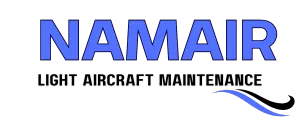

Copyright 2024 . All rights reserved
